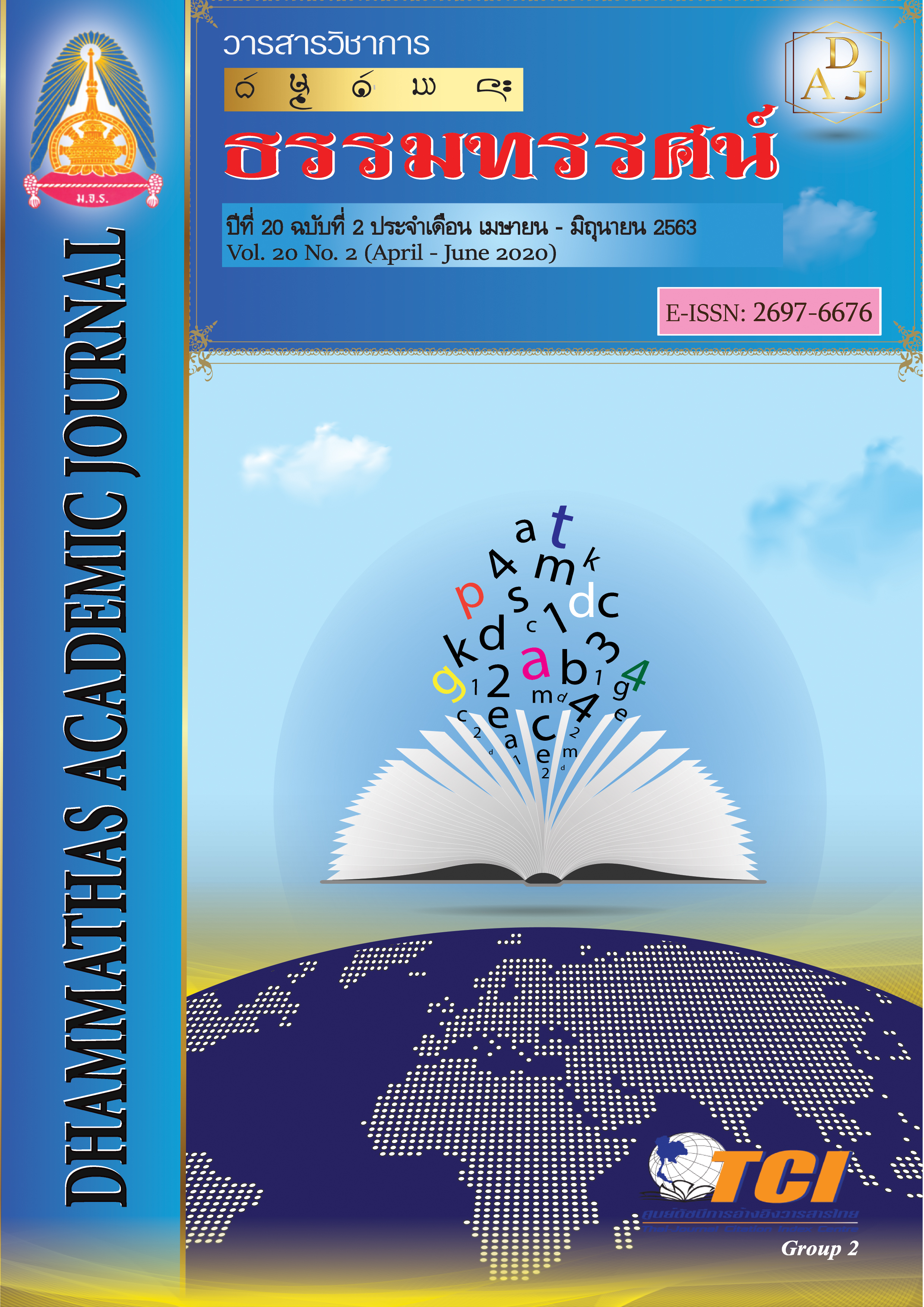The Development of Ethical Leadership Indicators for Small Primary School Principals in the 21st Century under the Office of the Basic Education Commission in the Northeast Region
Main Article Content
Abstract
The objectives of this study were: 1) to develop the ethical leadership indicators for small primary school principals in the 21st century under the Office of the Basic Education Commission in the Northeast Region and 2) to examine the goodness of fit for the structural model of ethical leadership indicators for small primary school principals in the 21st century with the empirical data. There were two phases in this study. The first phase was the theoretical indicators construction by documentary synthesis, then synthesized the data for the ethical leadership indicators for small primary school principals in the 21st century under the Office of the Basic Education Commission in the Northeast region. The second phase was to examine the structural model’s consistency with the empirical data. The samples were 800 small school principals drawn from the schools under the Office of the Basic Education Commission in the northeast region. The study instruments for data gathering consisted of a 5-point rating scale questionnaire. The SPSS was applied for quantitative data analysis to obtain mean, standard deviation bartlett’s test of sphericity and kaiser-meyer-olkin measure of sampling adequacy (KMO) were used for the appropriateness of the data for factor analysis. Computer program was used for confirmation factor analysis and examining the consistency of developed model with the empirical data.
The findings of this study were summarized as follows:
1. The results of the indicator formation and development were found that the ethical leadership indicators for small school principals in the 21st century were classified into 5 core factors, 15 sub-factors and 105 indicators. They were the trust with 3 sub-factors and 21 indicators, the responsibility with 3 sub-factors and 21 indicators, the morality with 3 sub-factors and 21 indicators, the transparency with 3 sub-factors and 21 indicators and the last one was the respect with 3 sub-factors and 21 indicators
2. The consistency of examining of the indicators’ confirmatory factor analysis model was found that the models were fit to the empirical data following the hypotheses and based on the statistics as follow : X2 =43.35, DF =32, P-value =0.08692, X2/df =1.35, GFI =0.99, AGFI =0.97, CFI = 1.00, SRMR =0.01, RMSEA = 0.02 and CN = 552.38
Article Details
References
Decision Making and Case. 7thed: South Western.
Fullan, M. (2013). The Moral Imperative of School Leadership. Ontario :
A Joint Publication.
Glanz J. (2016). What Every Principal Should Know About Ethical and
Spiritual Leadership. Thousand Oaks, Corwin Press : California.
Grace, B. (2018). Ethical Leadership. Retrieved June 11, 2018 from
http://www. ethicalleadership.org/philosophies/ethical-leadership
Hester, J. P. (2013). Ethical Leadership for school administrators and
teachers. North Cololina: McFarland.
Josephson, M. (2018). Ethical Leadership Outcomes Student Leader
Learning Outcomes (SLLO) Project. Retrieved August 10, 2018
form http: //josephsoninstitute.org/MED/MED-2sixpillars.html.
Klann, G. (2017). Building Character : Strengthening the Heart of Good
Leadership. San Francisco : Jossey-Bass Publisher.
Kritpong Keeratikorn. (2014). Raising the quality of teachers. Bangkok :
Dhurakij Pundit University.
Mayer, D. M., Kuenzi, M., Greenbaum, R., Bardes M., & Salvador, R.
(Bombie). (2018). How Low Does Ethical Leadership Flow? Test
of a Trickle-down Model. Retrieved April 27, 2018 from
http://www.bus.ucf.edu/dmayer/SJO/Research/Articles/Mayer,%20
Kuenzi,%20Greenbaum,%20Bardes,%20&%20Salvador_OBHDP_I
n%20Press.pdf
Mendonca, M. (2018). Preparing for Ethical Leadership in Organizations.
Retrieved June 10, 2018 from http://findarticles.com/p/articles/mi
_qa3981/is_200112/ai_n9017443/
Moorhouse, R. J. (2018). Desired Characteristics of Ethical Leaders in
Business, Educational, Political and Religious Organizations from
East Tennessee. A Delphi Investigation, East Tennessee State
University.
Mowbray, D. (2018). Code of Conduct for Ethical Leadership A Discussion
Document. Retrieved May 10, 2018 from www.derekmowbray
.co.uk.
Phattraporn Ketsang. (2016). Action research. Bangkok: Chulalongkorn
University.
Prayut Chooson. (2016). Leadership behavior and the ways to develop for
being the professional administrators of primary school
administrators in the northeast region. Doctor of education,
Khon Kaen University.
Resick, C. J., Hanges, P.J., Dickson, M. W., & Mitchelson, J.K. (2016). A
Cross – Cultural Examination of the Endorsement of Ethical
Leadership. Journal of Business Ethics, 63(11), 4.
Sutep Pongsriwat. (2562). Ethical Leadership. Retrieved September 12,
2019, from http://suthep.cru.in.th/leadership/leader2.doc
Wiroj Sanratana. (2010). The research methodology of educational
administration. Klangnanawittaya : Khonkaen.

